Stella Stevens, Memphis kid turned movie star, is dead at 84
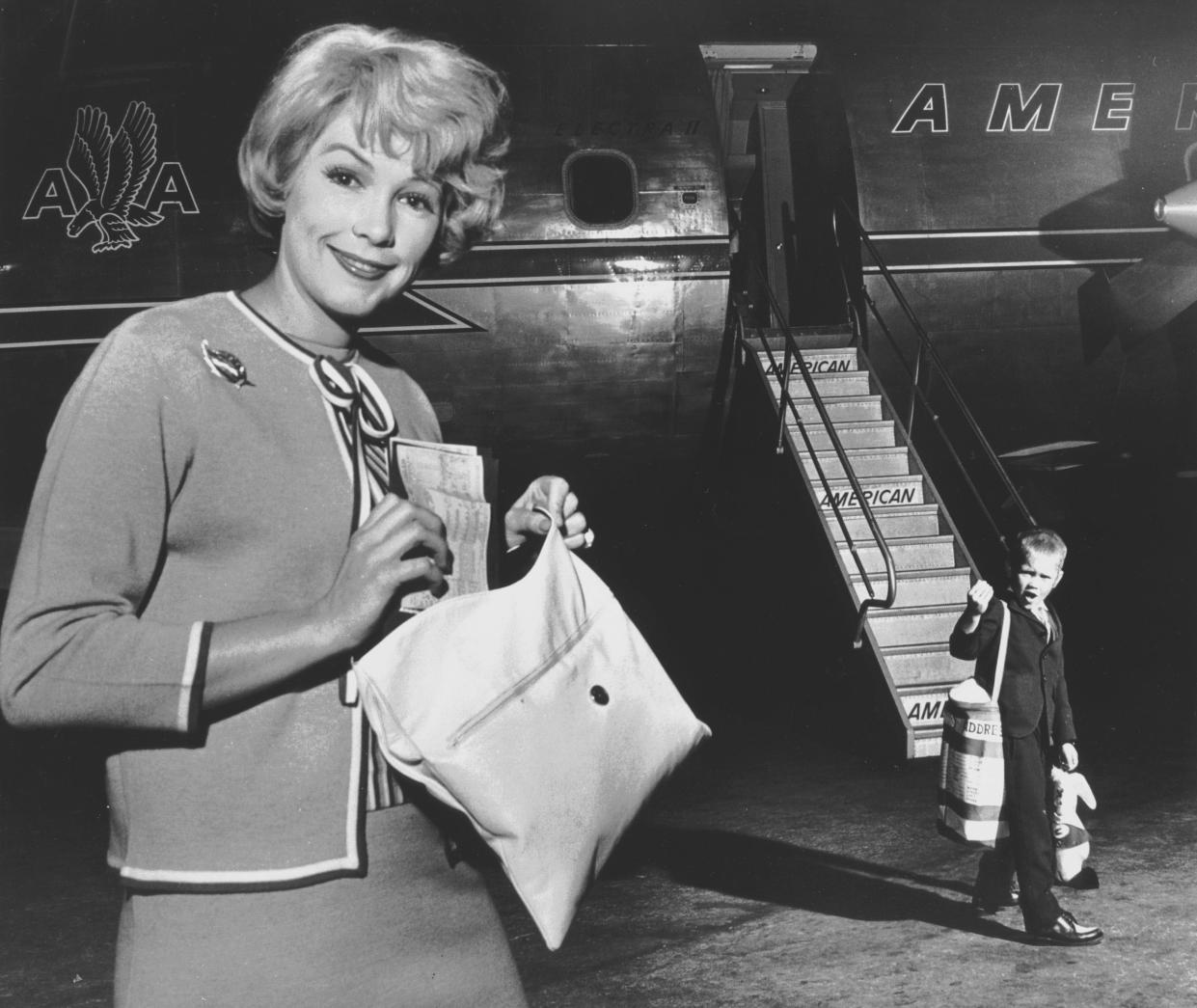
Stella Stevens, a Memphis kid who found international success as a Hollywood sex symbol and a comedic and dramatic actress opposite such varied leading men as Elvis Presley and Jerry Lewis, died Friday in Los Angeles after a long battle with Alzheimer's disease. She was 84.
As an actress, Stevens traveled all over the world, but the journey began in what was essentially her own backyard. She was "discovered," in classic magic-of-the-movies fashion, when a visiting press agent spotted her working as a "Junior Fashion Model" in the tea room at the old Goldsmith's department store in Downtown Memphis.
The agent had connections with 20th Century Fox, and soon Stevens was testing for movie roles and beginning an acting career that would include such hits as "The Nutty Professor" (1963), "The Courtship of Eddie's Father" (1963) and "The Poseidon Adventure" (1972).
Her film and television career spanned 50 years. She worked with such important directors as Lewis, Sam Peckinpah, John Cassavetes, Frank Tashlin, Vincente Minnelli and Peter Bogdanovich, and she appeared in all types of movies and in episodes of such series as "Alfred Hitchcock Presents," "Bonanza" and "The Love Boat."
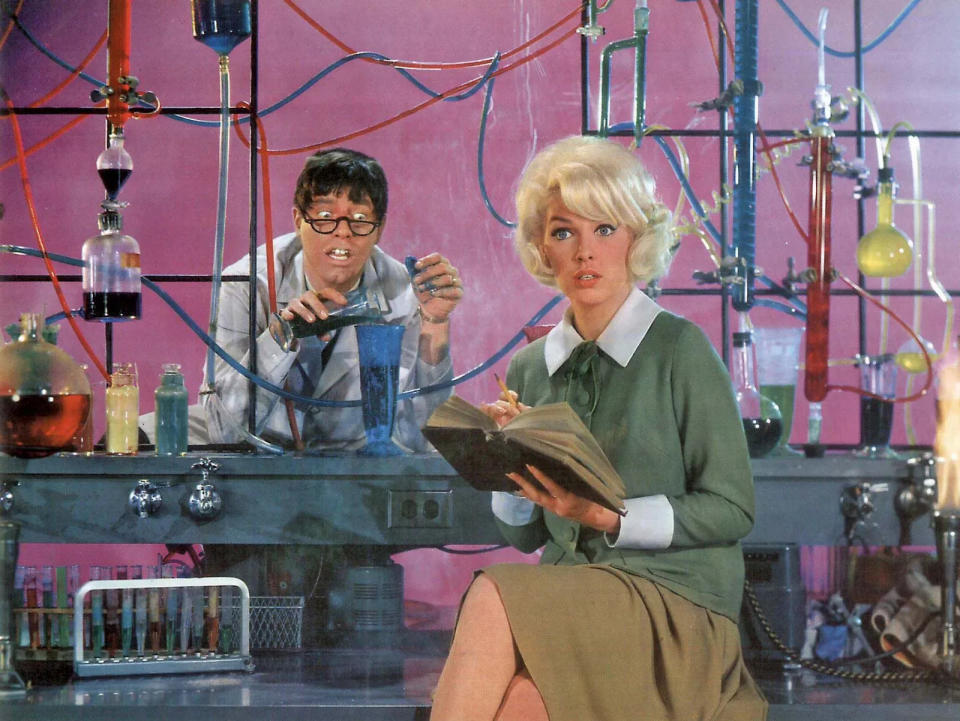
Stevens' last public appearance in her Memphis hometown was in 2002, when she hosted "An Evening with Stella Stevens" as a benefit for her childhood alma mater, St. Anne Catholic School at 670 S. Highland.
She also attended Messick Junior High, Sacred Heart High School and Memphis State University (now the University of Memphis), where she studied literature and history and essentially reinvented herself as a glamorous leading lady by dying her hair platinum blond to take the Marilyn Monroe role in a stage production of "Bus Stop." A positive review of her performance in the Memphis Press-Scimitar, the daily evening newspaper, "really started my career" as an actress, Stevens later told The Commercial Appeal.
Stevens' death was announced by her son, Andrew Stevens, a successful actor and producer/director who was born in Memphis in 1955 to Stevens and her first and only husband, electrician Nobel Herman Stephens. The couple married when Stevens was only 16, and were divorced by 1957, leading to an acrimonious child-custody battle that was highly publicized in the Memphis press before the court ruled in Stevens' favor in 1961.
Stevens was born Estelle Eggleston in Yazoo City, Mississippi. (Her stage name combined Stella, a diminutive of Estelle, with a streamlined spelling of her married name, Stephens.) Studio biographies originally claimed Stevens was born in Hot Coffee, Mississippi, but that was a fabrication of press agents, who referred to the starlet as "The Cream of Hot Coffee."
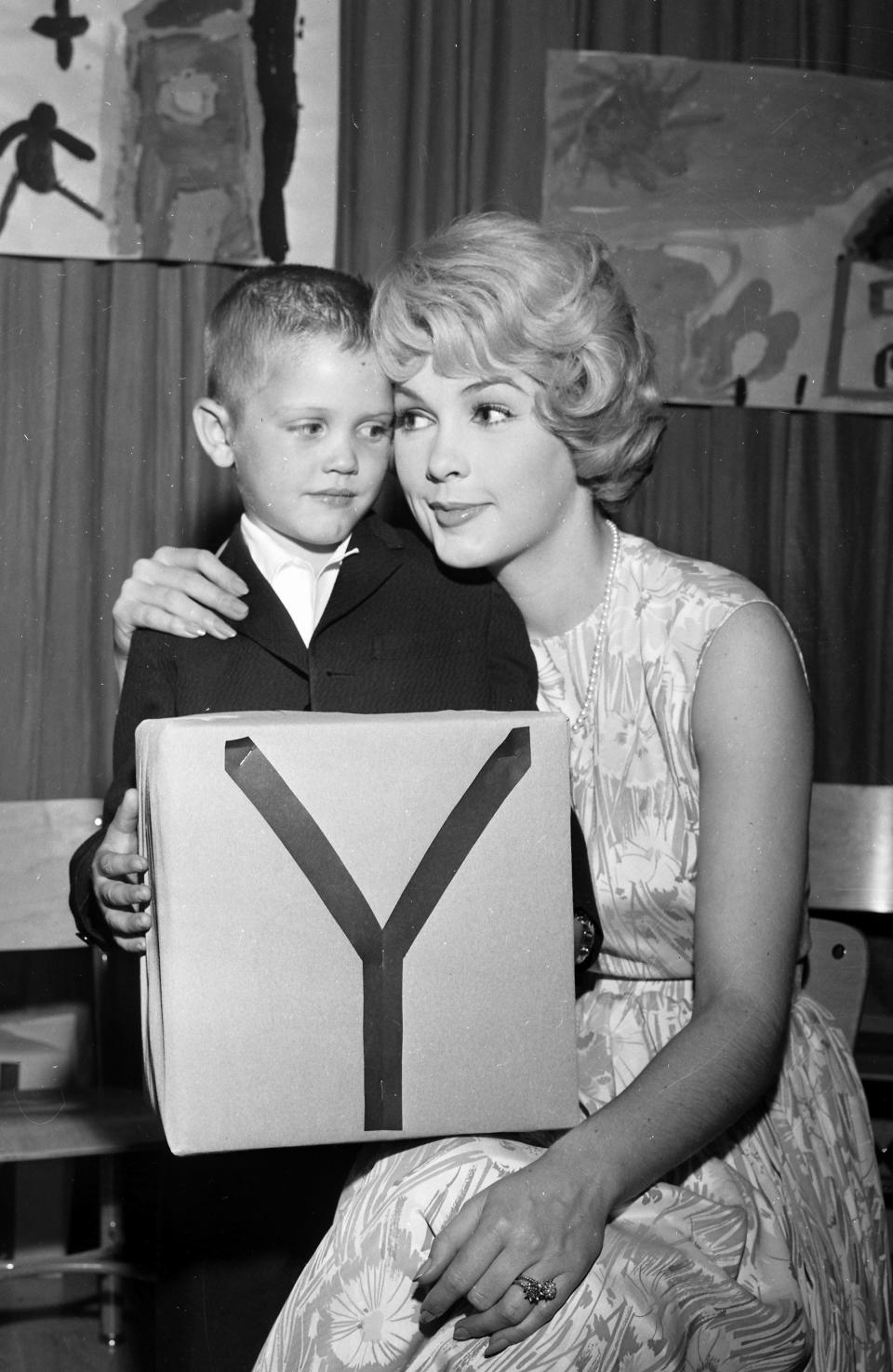
Memphis newspapers needed no such encouragement to follow Stevens as she pursued fame beyond the Bluff City in the wake of another young hometown hero turned movie star, Elvis Presley. They chronicled her accomplishments with a mixture of pride and prudishness.
On Christmas Day, 1959, the Memphis Press-Scimitar responded to Stevens' appearance as Playboy's Playmate of the Month with an editorial titled "Stella's Mistake," which sniffed: "We are sorry to see Stella Stevens fall victim to the cruel press-agentry of Hollywood... We hope Miss Stevens has the force of character to make this mistake the last of the sort."
In fact, Stevens also would appear in Playboy pictorials in 1965 and 1968, by which time the scowls had been replaced by jokes: "Stella Strips Again" was the nonchalant Press-Scimitar headline. Playboy, at least, remained consistent: In 1998, the magazine ranked Stevens at No. 27 on its list of the "100 Sexiest Stars of the 20th Century." (Raquel Welch, who died Wednesday at 82, was ranked third.)
Stevens was no stranger to strong reactions to public sexiness. In a 1994 interview, she told The Commercial Appeal that her mother tracked her down at a Memphis theater and pulled by her ear from a screening of "The Outlaw," a 1943 Western with Jane Russell that had been condemned by the Catholic Legion of Decency for its provocative content.
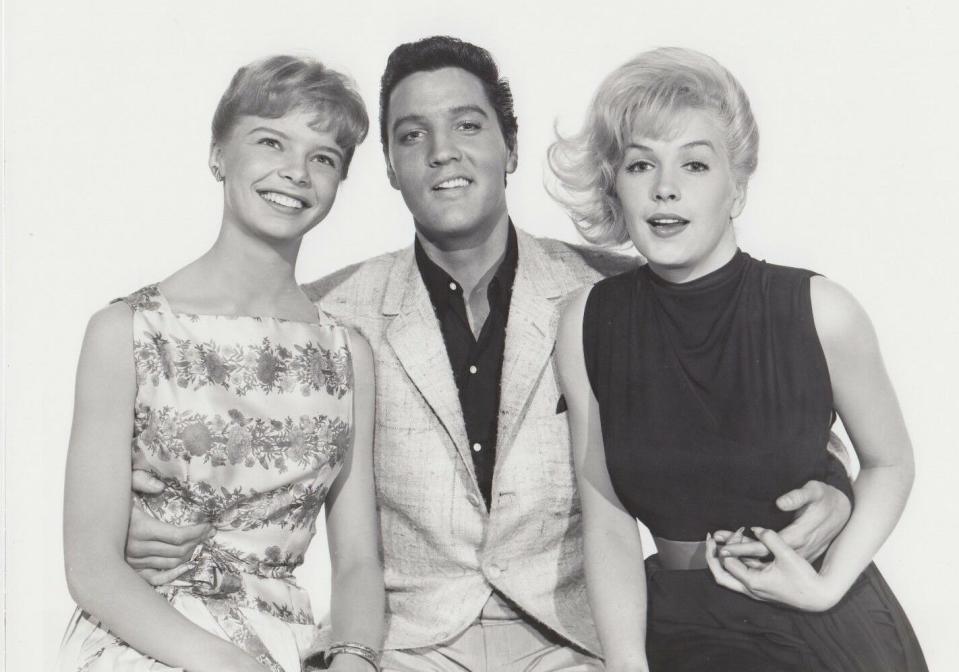
If Stevens' looks got her in the Hollywood door, she resisted staying in one place once she got in. She was cast as bombshell "Appassionata Von Climax" in one of her first films, the comic strip-inspired musical, "Li'l Abner," in 1959, but by the mid-1960s she had appeared in comedies, crime dramas and Westerns.
In addition to the Jekyll-and-Hyde-inspired "The Nutty Professor," in which Stevens appeared as the voluptuous but innocent Stella Purdy opposite Lewis' lovelorn Professor Julius Kelp (and Kelp's oily alter ego, Buddy Love), her first decade of credits included Cassavetes' jazz-themed "Too Late Blues"; "Girls! Girls Girls!" with Elvis; Minnelli's "The Courtship of Eddie's Father," which inspired a hit television series; and "The Silencers," one of a series of spy spoofs starring Dean Martin as secret agent Matt Helm.
She was a comical nun in the 1968 hit "Where Angels Go, Trouble Follows"; a comical prostitute in Sam Peckinpah's "The Ballad of Cable Hogue," in 1970; and a semi-comical seasick ex-prostitute married to Ernest Borgnine in the blockbuster disaster movie, "The Poseidon Adventure," which was the second-highest grossing film of 1972, behind "The Godfather."
She chafed against stereotypical "bombshell" roles. "I've always specialized in comedy," Stevens told The Commercial Appeal in 2002. "I believed it would save me from the label of 'sexpot,' which would have totally stomped me into the ground."
Film critic and historian Leonard Maltin is among those grateful for Stevens' decision. The entry for the actress in "Leonard Maltin's Movie Encyclopedia" begins: "Someday they'll erect a statue of Stella Stevens somewhere, and its base will read: Beautiful Women Can Also Be Funny." Maltin described Stevens as "a bright-eyed, voluptuous blonde" with "earthy charm and easygoing good humor" who never quite achieved "the stardom she so richly merited."
Neither snobbish nor timid, Stevens, as the years progressed, alternated prestige projects, such as Bogdanovich's "Nickelodeon," with B movies and genre films, including psychological horror ("The Mad Room"), "blaxploitation" (she was the villainous "Dragon Lady" in "Cleopatra Jones and the Casino of Gold"), women-in-prison thrillers ("Chained Heat"), and low-budget apocalyptic sci-fi ("The Terror Within II," directed by her son).
In addition, from the 1970s through the '90s, she was a ubiquitous television guest star, visiting Peyton Place and Fantasy Island and matching wits with everyone from Matt Houston to Nash Bridges. She was a regular on the 1980s prime-time soap opera "Flamingo Road," which lasted two seasons on NBC, and she was the nefarious Mama Jo Maxx, a distaff successor to Boss Hogg, in the 1997 TV movie "The Dukes of Hazzard: Reunion!"
Through it all, Stevens remained "an idealist," she told The Commercial Appeal. She said she especially was grateful to have been "one of the last contract babies," signing with Paramount and then Columbia at the twilight of the traditional studio system, when movie companies trained actors to be versatile and teamed newcomers with veterans. This provided "the best movie education a girl could ask for," she said.
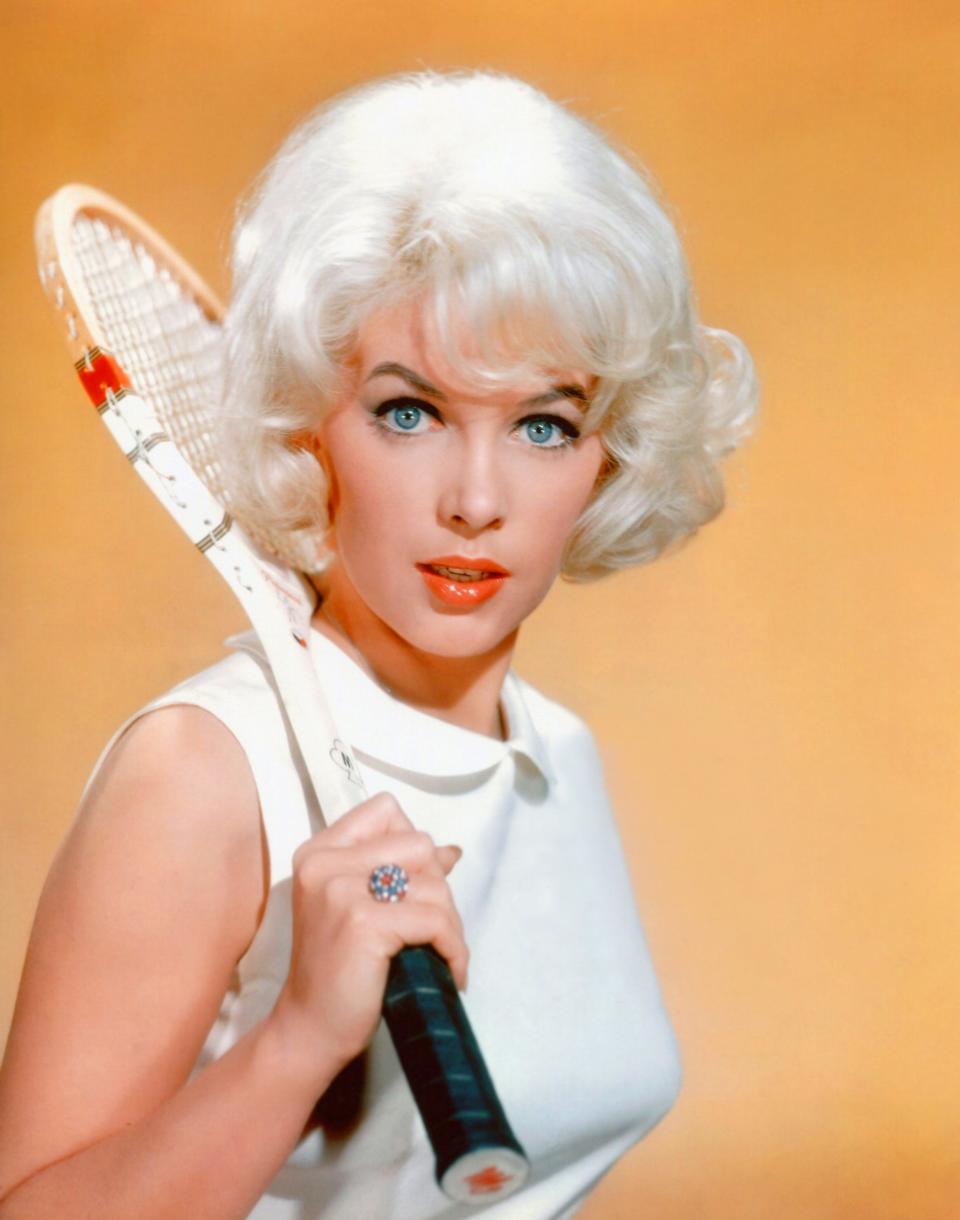
She credited Lewis as a favorite director. In the original script for "The Nutty Professor," she said, her character name was Stella Payne. "I said, 'Jerry, I don't want to be a 'pain,' and the next thing I knew I got a revised script, and my name was Stella Purdy," with "Purdy" a near-homonym for "pretty." "I loved that he would do that for me," Stevens said.
Inspired in part by Lewis, she longed to be a director, and blamed Hollywood sexism for holding her back. She directed two features, "The American Heroine" (1979), a documentary about the strength and achievements of women, that remains unreleased, and "The Ranch" (1989), a made-in-Canada comedy starring her son.
After achieving fame, Stevens returned to Memphis with what might be called infrequent regularity, usually to visit family. Her parents continued to live here. Her father, Thomas E. Eggleston, a longtime foreman at the old International Harvester plant, died in 1991, while her mother, also named Estelle Eggleston, died in 2002.
Stevens said that though she loved Memphis and the South, the racism and resistance to non-comformity she encountered when she was young made living here hard. "I remember when Martin Luther King was killed in Memphis, Tennessee, a town I should be proud of," she told The Commercial Appeal. "I was in Australia when I got that news, and they all knew I was from Memphis. I had real moments of heartache. It was horrendous.
"If there's anything I stand for in my life, it would be peace and harmony, and trying to make the most of every moment of our lives. I believe that love can conquer hate."
This article originally appeared on Memphis Commercial Appeal: Stella Stevens, Nutty Professor and Poseidon Adventure actress, dies
